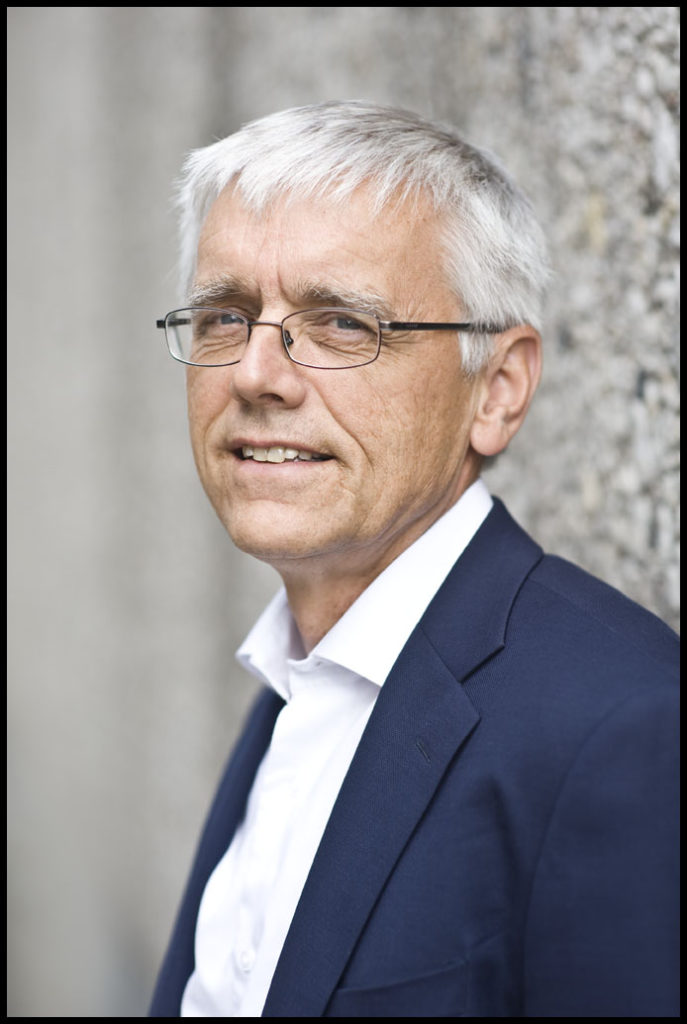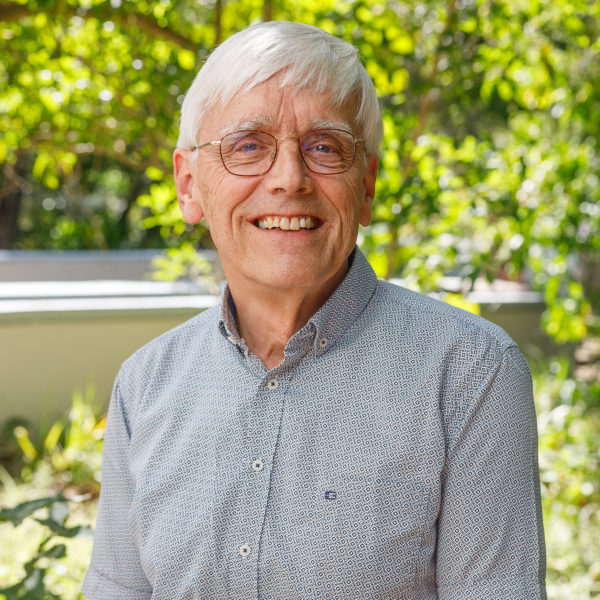Register here by 8 April 2024
STIAS Fellow Professor Hans V. Westerhoff, professor emeritus of (synthetic) systems biology and molecular cell physiology at the University of Manchester, the University of Amsterdam, and the Vrije Universiteit Amsterdam will present a public lecture with the title:
Beyond physics and law: How biology deals with uncertainties in health and disease
 Abstract: With thousands of genes operating in consort, the human body bears considerable similarity with a town like Stellenbosch or its university: chaos and order at the same time. How can we attempt to understand how both of these work in concert? Can we hope to predict the outcome of interventions such as medicinal therapies or policies? How can we put rules in place that prevent malignancies?
Abstract: With thousands of genes operating in consort, the human body bears considerable similarity with a town like Stellenbosch or its university: chaos and order at the same time. How can we attempt to understand how both of these work in concert? Can we hope to predict the outcome of interventions such as medicinal therapies or policies? How can we put rules in place that prevent malignancies?
In the old days science gave hope. Newton taught that letting go of an apple would cause it to fall downward, not sideways. That a chicken breeding her egg will give rise to a chicken and not a cow, is another such certainty, this time offered by Biology. But then, Heisenberg tore up the certainty with his fundamental trade-off: one cannot know velocity and position at the same time. And modern biomedicine made it even worse: even the best pharmaceutical drugs work only for 40%. Therapies nor rules/laws seem to guarantee outcomes. This lecture will walk you through this predicament of uncertainty and Einstein’s proposed solution: more complete information.
Although Einstein’s solution failed in Physics, it may actually work beyond Physics, i.e., in Biology and Society: the uncertain, random movement in biology maximizes total randomness. Paradoxically, this works like Stellenbosch’ traffic on a Friday afternoon: chaotic yet with a clear direction: out of town towards increased chaos in the open flats, across the wineries and in the Karoo. In Biology this corresponds to eating, metabolizing and secreting heat, which increases chaos outside ourselves whilst enabling us to do useful work and agreeable thinking. The virtually complete information brought by genome (complete DNA) sequencing, now enables us to depict this metabolism as if it were traffic on the map of the town. Genetic or acquired diseases then correspond to road blockages or wrong turns. Their mapping enables us to design detours through altered nutrition or medicinal drugs. Entirely new therapies and laws may surface that are more effective but work at a distance. The maps differ between individual persons (and towns), in principle enabling us to design drugs or therapies that work for 33 % of the individuals all of the time, with other therapies working for the other 33 percentiles again all of the time. Uncertainty at the population level turns to certainty at the level of the individual, at least in principle.
The differences between individuals are not just there to make our lives difficult. Ecosystem diversity, diversity between the cells in our body, and diversity between the individuals in a town, can serve to enhance overall functionality and well-being; I would not like to hear myself play the violin, but loved to hear the Stellenbosch Camerata, on the other hand they may not like holding pipettes in a laboratory. These findings will be compared with outcomes of research programs of other STIAS fellows from a wide variety of Arts and Sciences, and implications for educational policies at universities will be discussed.
Biography: Hans V. Westerhoff is professor emeritus of (synthetic) systems biology and molecular cell physiology at the University of Manchester, the University of Amsterdam and the Vrije Universiteit Amsterdam. In an era where mathematics was ‘not done’ by biochemists and experiments were ‘not done’ by mathematicians, he was one of the few who got their hands both wet and dry. This led him from a PhD in Amsterdam to a study of DNA supercoiling and antimicrobial peptides at the (USA) National Institutes of health, back to the Netherlands Cancer Institute, and on to three European Universities, where he became director of two systems biology institutes. He is considered one of the founding parents of Systems Biology with over a 100 ex-PhD students and postdocs and over 500 publications ranging from wet-lab microbiology and molecular medicine to mathematics and philosophy. For more than 30 years he has been in close contact with Stellenbosch’ triple J group (Hofmeyr, Rohwer, Snoep). He was one of the first two STIAS fellows (in 2001, developing Ecological Control Analysis with Wayne Getz) and is now again a Fellow in Residence at the Stellenbosch Institute for Advanced Study.
Prof. dr. H.V. (Hans) Westerhoff Photo: Jeroen Oerlemans

